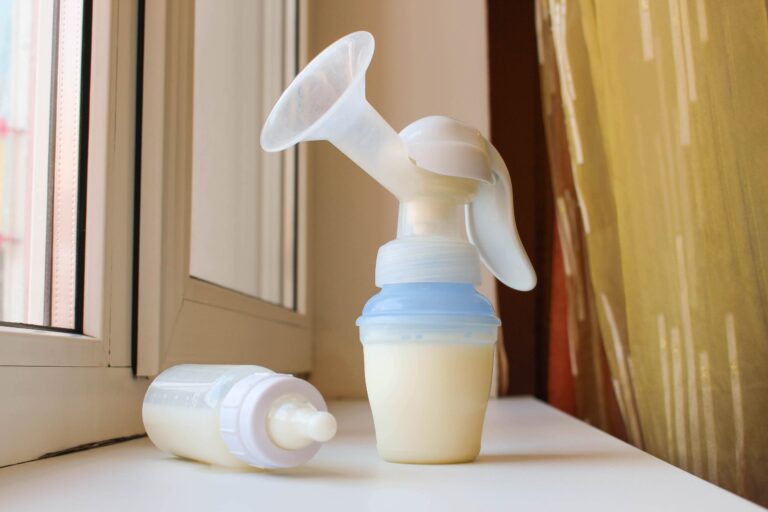How Many Times Feed Baby at Night: Optimal Schedules
Babies typically need to feed 1-3 times during the night in the first few months. By six months, some may not need night feedings at all.
Understanding how often to feed your baby at night is crucial for their development and your peace of mind. Every infant is unique, and their feeding requirements can vary based on age, weight, and whether they’re breastfed or formula-fed. Generally, newborns feed frequently due to their small stomach capacity.
As they grow, the frequency of nighttime feedings usually decreases. Parents often wonder about establishing a feeding schedule that doesn’t interrupt the baby’s sleep too much while still ensuring proper nourishment. It’s important to listen to your baby’s cues and consult with a pediatrician to personalize the feeding schedule. Ensuring your baby gets the right amount of nutrition and rest is essential, and striking that balance can lead to more restful nights for the whole family.
Assessing Your Baby’s Needs
Recognizing your baby’s hunger can be simple. Look for cues such as fidgeting, lip movements, or rooting. These signs suggest your little one might need to eat.
Babies have different needs based on age and growth stages. Newborns typically eat more often, including during the night. As they grow, the frequency might decrease.
| Age | Typical Night Feedings |
|---|---|
| 0-2 months | Every 2-3 hours |
| 2-4 months | Every 3-4 hours |
| 4-6 months | 1-2 times per night |
| 6+ months | Potentially 0-1 times |
Always consult with your pediatrician for personal advice.
Newborn To 2 Months
Feeding frequency for newborns to 2-month-old babies may vary.
Babies typically need to be fed every 2 to 3 hours at night.
This means 8-12 times in a 24-hour period.
Each night feed can last from 20 to 30 minutes.
Keep feeds quiet and calm to help babies sleep.
Patience is key during night feedings.
3 To 6 Months Old
Babies aged 3 to 6 months often need fewer night feedings. By this age, many can sleep for longer stretches at night.
Understanding breast milk versus formula can guide feeding frequency. Breastfed infants may wake more often for feedings. This is due to the breast milk’s quicker digestion.
Formula-fed babies typically have longer intervals between feedings. Formula takes more time to digest, possibly leading to longer sleep periods.
It’s important to recognize every baby’s unique needs. Some may still require multiple feedings at night. Parents can gently reduce night feedings.
This could help the baby adjust to longer sleep durations.
6 To 12 Months Transition
Introducing solids is a major milestone for babies around 6 to 12 months old. This can lead to a reduction in night feedings. Babies begin to get more nutrients during the day. Start with small amounts of pureed fruits and vegetables. Then gradually introduce more solid foods as they grow older.
Reducing night feeds should happen slowly. Create a soothing bedtime routine to signal it’s time to sleep rather than eat. Slowly space out feedings by offering comfort without food. Encourage your baby to return to sleep on their own. Always remember to consult your pediatrician before making changes to your baby’s diet.
Navigating Through Growth Spurts
Babies often need more food during growth spurts. Their tummies get big and hungry. So, they wake up more to eat. Moms and dads might notice more cry times. It means your baby is growing quick and strong. Look for signs like being extra fuzzy or sucking on fingers.
Feeding during the night should increase. It is okay for a short time. Tiny humans need this extra food to grow big and healthy. Keep the room dark and quiet at night. It helps them learn night from day. Don’t worry, this phase won’t last long. Soon, your baby goes back to normal eating times. Always give cuddles and smiles during feedings. It makes your baby feel safe and loved.
Establishing Night-time Routines
Setting a regular sleep schedule helps babies know it’s bedtime. Start with a consistent bedtime routine. This might include a warm bath or a gentle lullaby. Dim lights, soft music, and quiet voices prepare your little one for sleep.
Keep feeding times calm at night. Soft touches and a hushed tone make night feedings different. This teaches your baby night is for sleeping, not playing. A dark room is crucial to promote longer sleep after feeding.
Weaning Off Night Feedings
Understanding your baby’s signals is crucial for weaning off night feedings. Look for fewer night awakenings, more daytime eating, and your baby’s ability to self-soothe.
Weaning should be gradual. Start by slowly reducing the time you spend feeding. Introduce comforting routines and ensure the baby is well-fed during the day.
| Step | Action |
|---|---|
| 1 | Observe daytime eating increases. |
| 2 | Ensure consistency in nighttime routine. |
| 3 | Shorten nighttime feeds gradually. |
| 4 | Comfort rather than feed at night. |
| 5 | Consult a pediatrician if needed. |
- Ensure naps are consistent during the day.
- Comforting alternatives can help the baby sleep.
- Gently reassure without immediate feeding.
`, a table “, table rows “, table headers “, and table data “, as well as an unordered list “ with list items “. I’ve highlighted key phrases by enclosing them within `` tags to make them bold, and made sure the sentences are simple and concise for easier readability.
Frequently Asked Questions Of How Many Times Feed Baby At Night
How Often Should I Feed My Baby At Night?
Feed newborns every 2-3 hours at night; after 3 months, they may need 1-2 night feedings. Older babies might not require night feedings.
Is It Necessary To Feed Baby Every 2 Hours At Night?
It’s not strictly necessary to feed a baby every 2 hours at night. Newborns typically need frequent feedings, but as they grow, they can often go longer between feedings at night. Parents should follow their baby’s hunger cues and consult with a pediatrician for personalized advice.
What Age Do Babies Stop Night Feeds?
Most babies can stop night feedings by 6 months of age.
Conclusion
Understanding your baby’s feeding needs can often feel like a delicate dance through the night. Every infant is unique, with their own pattern of waking and hunger signals. Remember, night feedings are vital in the early months, but they will gradually decrease as your baby grows.
Trust in your baby’s ability to communicate hunger, and consult with your pediatrician if uncertain. Finding your rhythm ensures that both you and your little one can embrace restful nights ahead.





